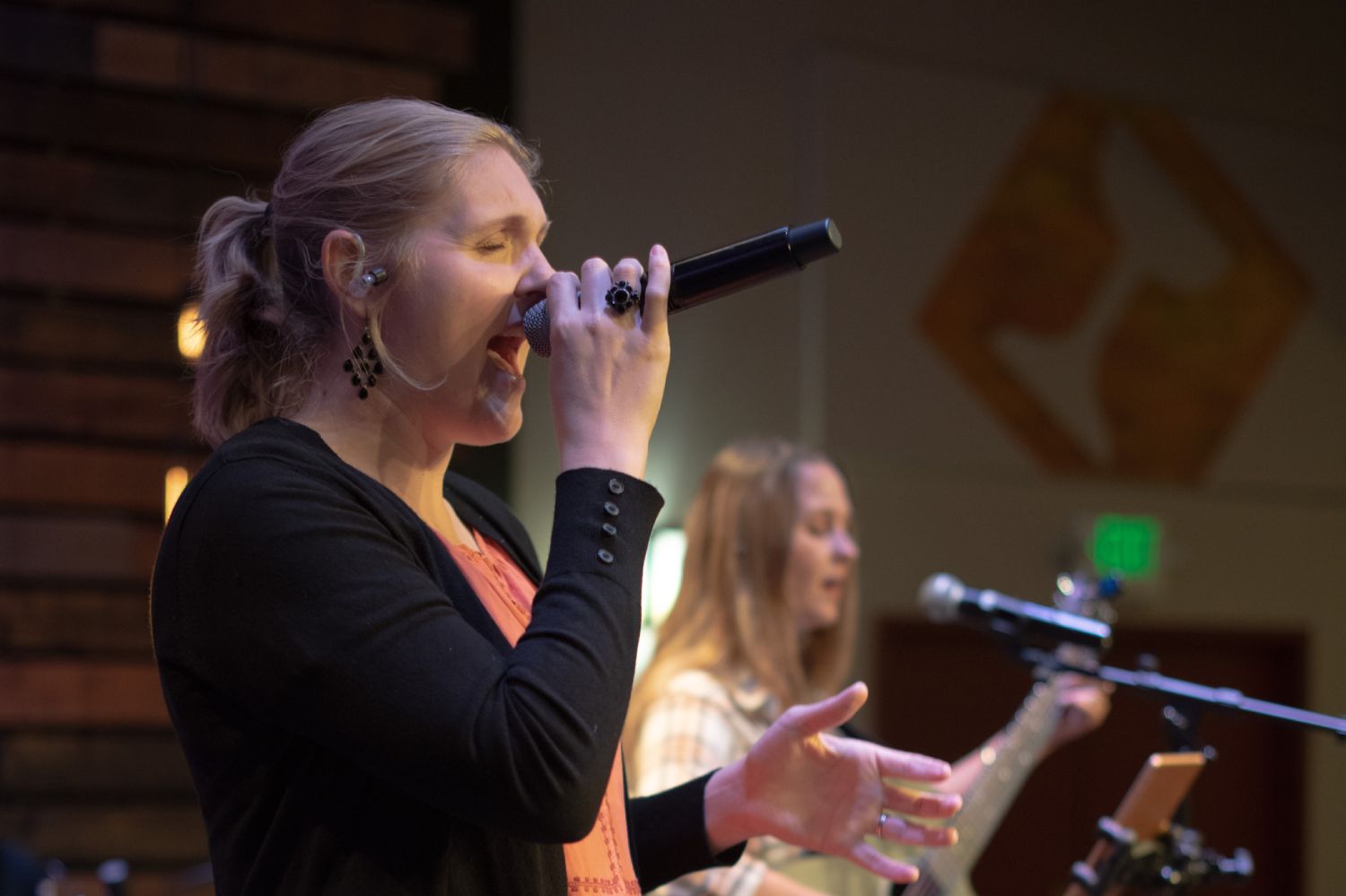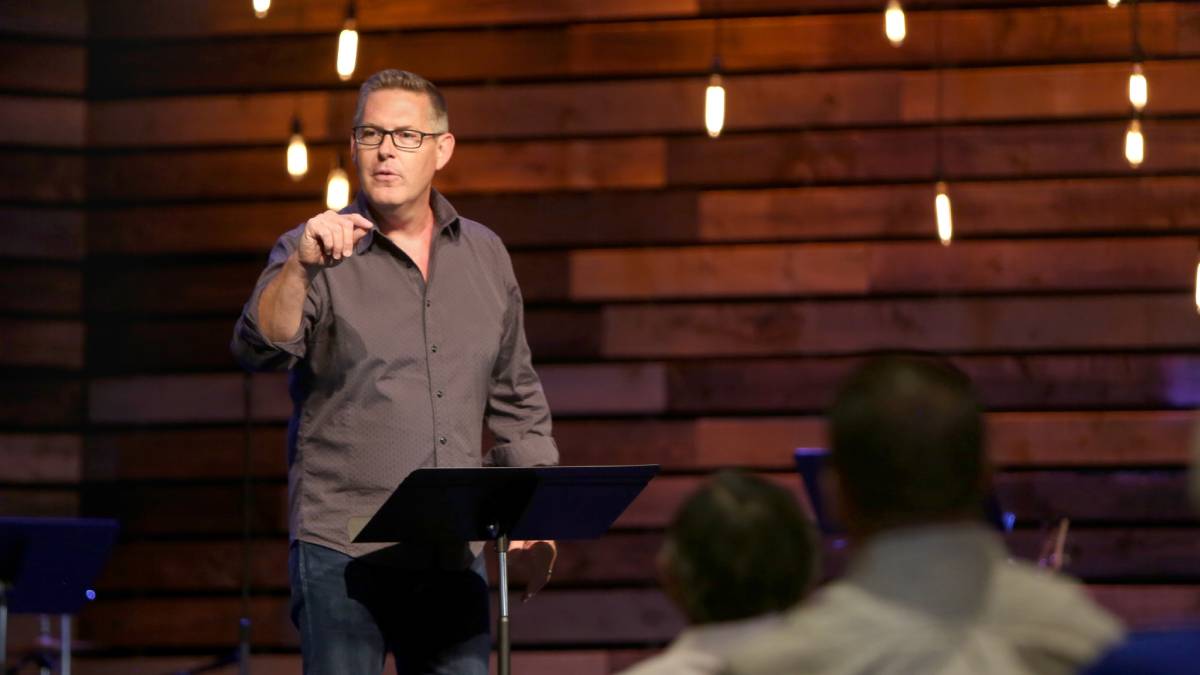“Announce a time of fasting; call the people together for a solemn meeting. Bring the leaders and all the people of the land into the Temple of the Lord your God, and cry out to him there.” Joel 1:14
Fasting is a period of time when followers of Jesus choose to go without food or some other power source in order to express greater dependance on God. When believers fast, they are declaring to God and to themselves, “We trust in You, Jesus, for all we need. Because of Your power and provision, we don’t need anything else.” Fasting also shouts to our flesh, “You don’t rule me — God does. I don’t have to give into you!” Fasting is an important and biblical way to grow in our relationship with the Lord and prepare ourselves for His work.
Picture needing a power source to operate your life. What do you plug into to meet that need? Any answer you provide (and it will be a different answer for each of us) is something you might fast from. And when you do, you are creating an opportunity to trust God more fully as your source.
Fasting is when a follower of Jesus “unplugs” from food or other power sources for a set time in order to more fully “plug into” God.
Think about the spiritually powerful results that may come from switching out what we’re plugged into:
- Greater awareness of God’s activity in our lives
- Clearer focus on what God is speaking to us
- Increased worship as we turn with laser focus to Jesus
- Stronger spiritual and relational connections when we’re fasting with others
- Breakthrough freedom as we realize we don’t need other things as much as we thought
And the Bible shows us that fasting should be considered a normal part of a growing disciple’s life. So let’s go a bit deeper in our understanding of this spiritual practice, starting by recognizing two things that fasting is NOT.
First, fasting is not a way to rid ourselves of evil. Our bodies were created by God, and 1 Corinthians 6:19 says, “Don’t you realize that your body is the temple of the Holy Spirit, who lives in you and was given to you by God?” These human bodies are gifts, given to us by God. Some false belief-systems, however, consider them evil, rather than homes for the very presence of God. This has led some to mistakenly think they have to work to please God by “purifying” their flesh. People who’ve believed this lie have starved themselves, crawled for miles on their knees, and even allowed themselves to be nailed to crosses attempting to purge themselves of wickedness.
But God’s Word is clear: Jesus made the perfect sacrifice once and for all time so all of humanity’s sin — including our own — could be washed away forever. The only way to get free from our sin is to accept His free gift of salvation! 1 Peter 2:24 says, “He personally carried our sins in his body on the cross so that we can be dead to sin and live for what is right. By his wounds you are healed.”
Is fasting hard? Yes! Fasting is absolutely challenging because we are used to eating, drinking, and doing whatever we want, whenever we want. Our bodies are used to being in charge. So when we tell them “NO!” during a fast, our bodies will likely rebel a bit. But remember: fasting is never a punishment for our sin. Rather, it is an act of spiritual self-discipline that is helping us to grow in the ways of Jesus.
Second, a spiritual fast is never about changing our image. It’s not a way to look more religious, lose weight, or change anything else about our outward appearance. Jesus told his disciples in Matthew 6:16-18, “And when you fast, don’t make it obvious, as the hypocrites do, for they try to look miserable and disheveled so people will admire them for their fasting. I tell you the truth, that is the only reward they will ever get. But when you fast, comb your hair and wash your face. Then no one will notice that you are fasting, except your Father, who knows what you do in private. And your Father, who sees everything, will reward you.”
If someone’s motivation to fast is to appear religious or to lose extra pounds, then it’s not a spiritual fast and it will not bring a spiritual reward. True fasting is always a reflection of the passion of one’s heart to grow in the Lord and worship Him alone. And that kind of fast comes with a promise: God, our Father, WILL reward us!
Let’s take a look at several more important truths about fasting.
- Fasting is biblical. Throughout God’s Word we find men, women, groups and even whole nations humbling themselves before the Lord in times of fasting. Ezra (Ezra 8:21), the nation of Israel (Nehemiah 9:1-3), Esther (Esther 4:16), David (2 Samuel 12:16-23), Daniel (Daniel 10:1-3), Jesus (Matthew 4:1-2) and the disciples (Acts 13:2-3) all fasted.
- Fasting usually involves going without food. Why? Food is one of the only universal things we all plug into for strength. Giving it up for a season is difficult — but it boldly declares our passion to place our dependance on God alone. There are several ways we can fast from foods:
- A “Daniel fast” limits a diet to only fruits and vegetables (Daniel 1:8-16). Almost everyone can participate in this kind of a fast without much physical difficulty.
- A “partial fast” limits eating to one or two meals per day. If someone chooses to just eat dinner during a partial fast, then they’d fast each day from after dinner until dinner time the next day.
- A “juice fast” is one that includes no solid foods but fruit juice only. This greatly helps to maintain energy for those who have an active schedule. Many people have found it’s possible to fast for multiple weeks while consuming only juice and water.
- A “water fast” is more challenging and should be done with caution if a fast is longer than a few days. Preparations should be made to cut back on regular activities during a water fast, as energy levels will likely be significantly impacted.
- For those who are fasting from food, wisdom should be used before, during and after the fast. Here are ways you can reduce the strain on your body.
- Prepare before the fast by reducing your intake of caffeine and sugar. This will help to reduce fatigue, headaches and other side effects you might experience if you were to suddenly cut them from your diet.
- Drink more liquids than usual during your fast. Drinking extra liquids (especially water) will ensure you don’t become dehydrated and will help to flush toxins from your body.
- Increase your sleep and rest while fasting in order to help maintain your energy levels.
- End your fast slowly. Especially if you have been on a liquid fast for more than a few days, your body will need time to readjust to digesting solid food again. Take a couple of days to ease into foods by eating mild fruits and soups. Never break a longer fast with a large meal!
- For some, fasting should NOT include going without food. Those who are involved in sports or jobs requiring heavy activity, those with diabetes or other illnesses affected by food intake, those who are pregnant, and those who have had eating disorders should not go without food unless under a doctor’s care. People in these categories can still fast in spiritually powerful ways. Remember: fasting has everything to do with becoming more dependent on God and less dependent on other things we normally plug into. Fasting should never harm our bodies. If you have any question about whether a particular fast might be harmful for you, seek the advice of your doctor before fasting.
- Fasting can include laying aside things other than food. We fill up our lives with so many things that can easily become what “ministers” to us, rather than God. For many it’s things like social media, music, friends, video games, educational pursuits, romantic relationships, hobbies, etc. None of these things are inherently bad, however, ANY of them can become idols in our lives — things we allow to minister to our needs in place of Jesus. By unplugging from these kinds of things during a fast, we are declaring once again: Jesus is our Lord, and we have no master other than Him! So, whenever entering into a fast, ask God first what He wants us to unplug from for a season. Obedience to Him will bring great victory.
- Set aside time during your fast to pray, read God’s Word and worship. Just because you’re fasting doesn’t guarantee you’ll have meaningful times with the Lord unless you make room for Him in your busy schedule. And before you fast, select “prayer targets” you’ll be bringing before the Lord. Are there areas in your life, family, friends, church, city or world, that need spiritual breakthrough? Allow these to become specific prayer objectives during your fast.
- Fast with others. It’s common for believers to set aside time to fast by themselves as a regular practice of discipleship. But at other times, someone may call a church or group to a specific time of fasting (see Esther 4:16, Jeremiah 36:9, and Ezra 8:21-23). But whether we’re fasting individually or as part of a group, it’s helpful to find other believers who will partner with us for encouragement and accountability, so we don’t grow weary and give up along the way.
- God never beats us up for falling short. Rather, in His grace, He enables us to get back up and keep going. So if you’ve slipped out of your intended fast, don’t allow the devil to condemn you and make you feel like a spiritual failure. Don’t give the enemy an inch — just continue your fast with a renewed commitment to rely on God’s power to see you through.
- Get ready for breakthrough! When we fast, we are setting the stage for what God wants to do both in us and through us. Many have experienced great spiritual victory during times of fasting. Some have received visions, healings, prophetic words, and other miracles during and after times of fasting. Expect God to do great things when you boldly and obediently engage in this spiritual practice.
Do you remember when Jesus made a whip and cleared the Temple from what was standing between people and His Father? The truth is, Jesus remains just as relentless in His passion to see nothing come between you and God. As you embrace the practice of fasting as a spiritual discipline and act of worship, you’ll find fewer things getting in the way of your passionate relationship with Him. Begin fasting and discover fresh new pathways that lead to a life of freedom and fruitfulness in Him.
“Blessed are those who hunger and thirst for righteousness, for they shall be satisfied.” Matthew 5:6


